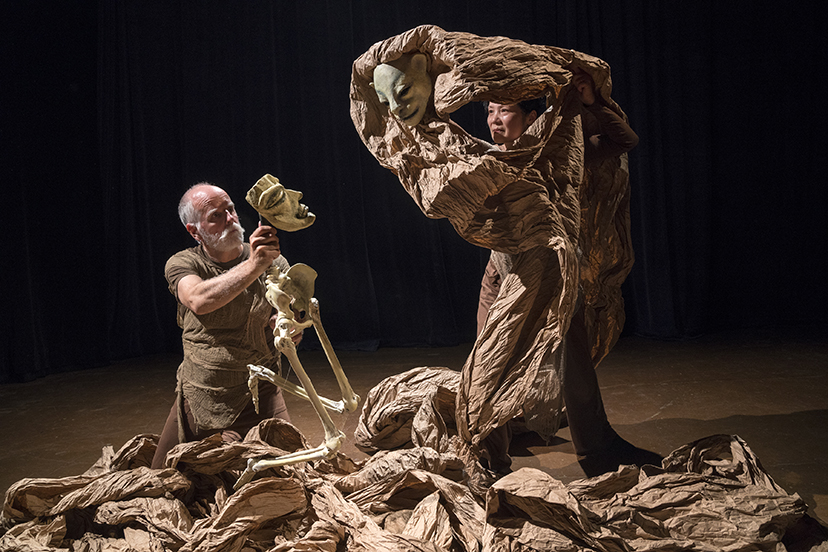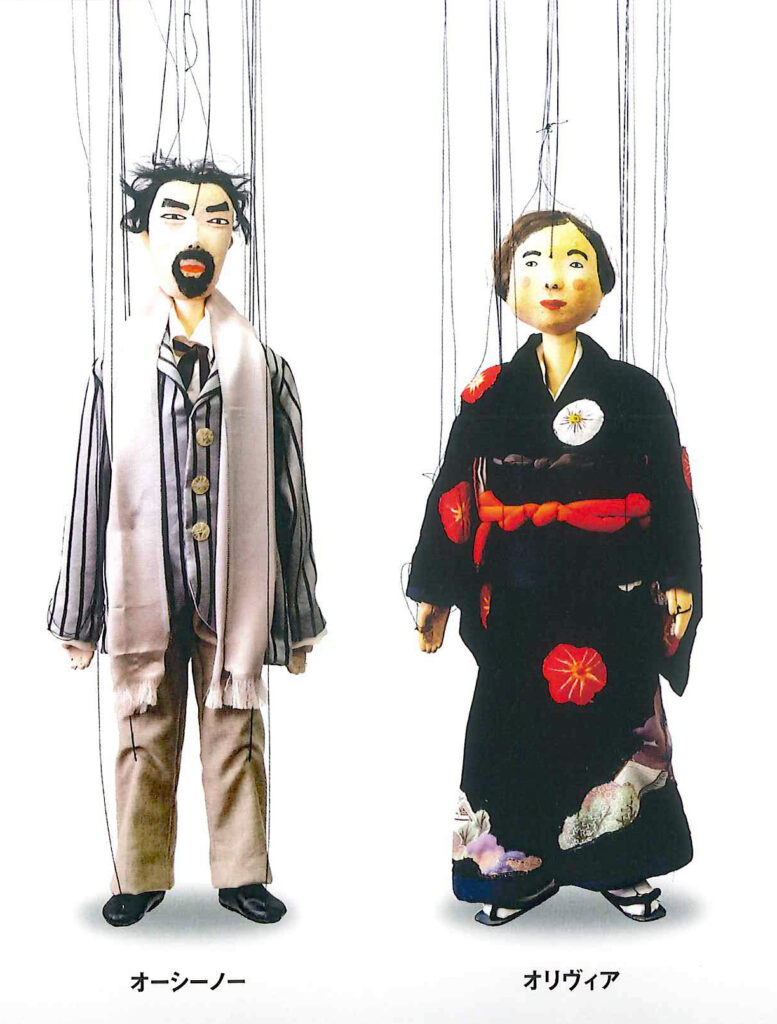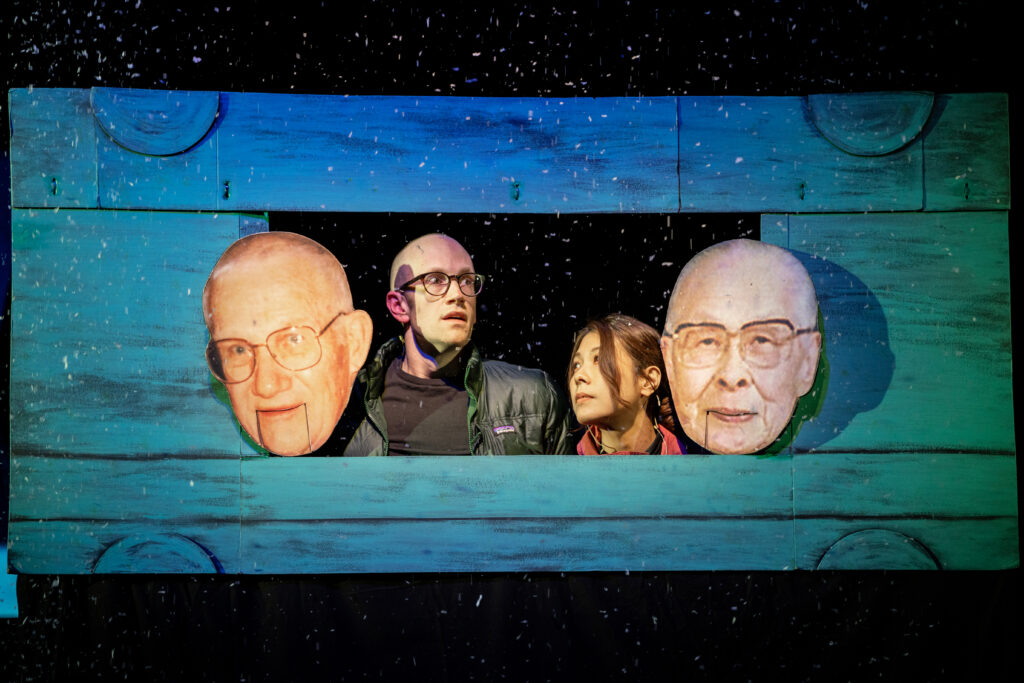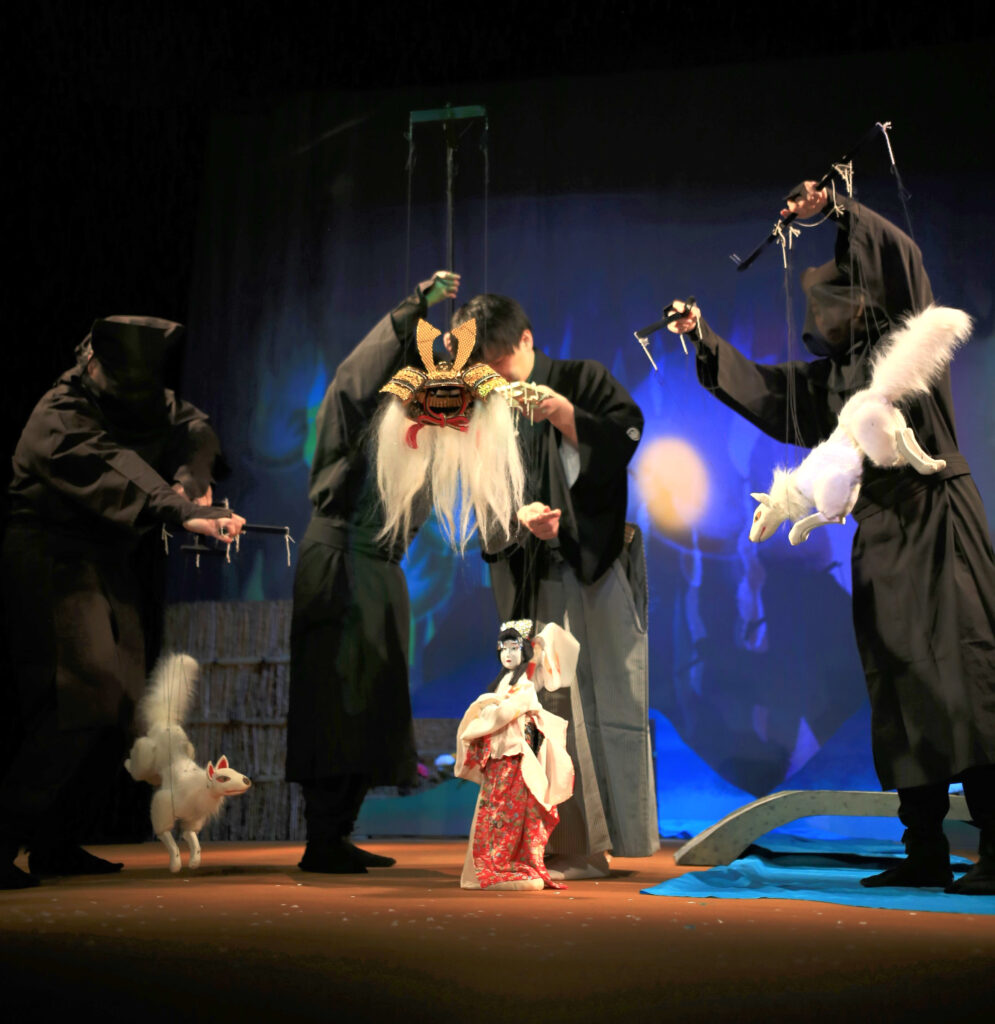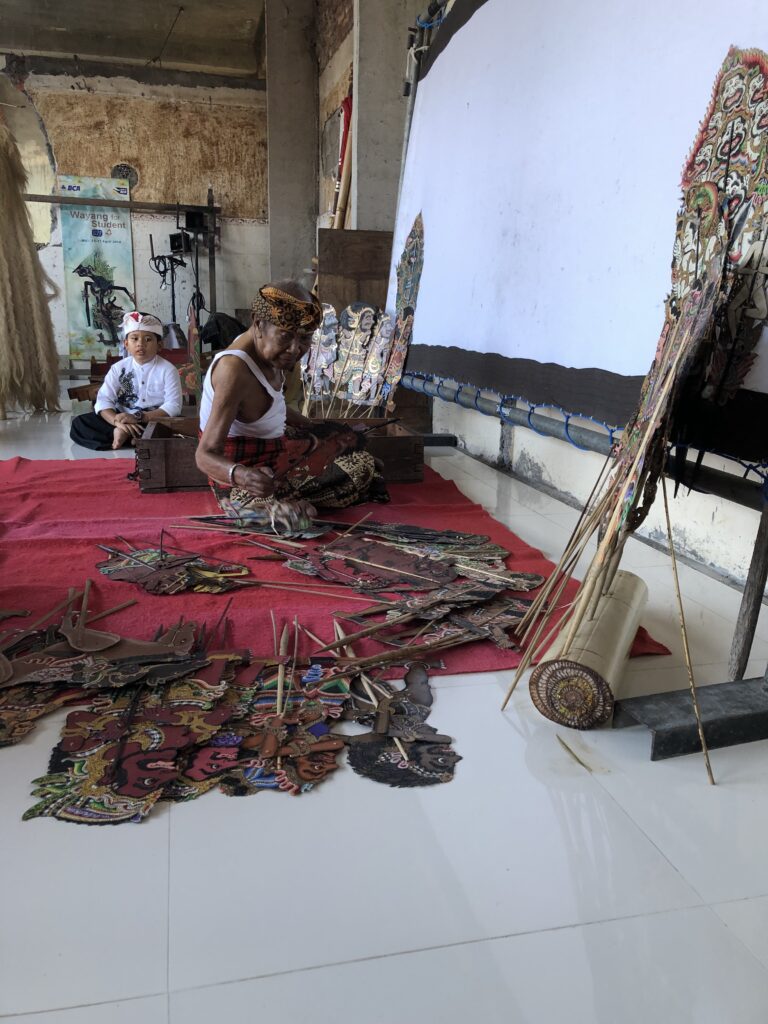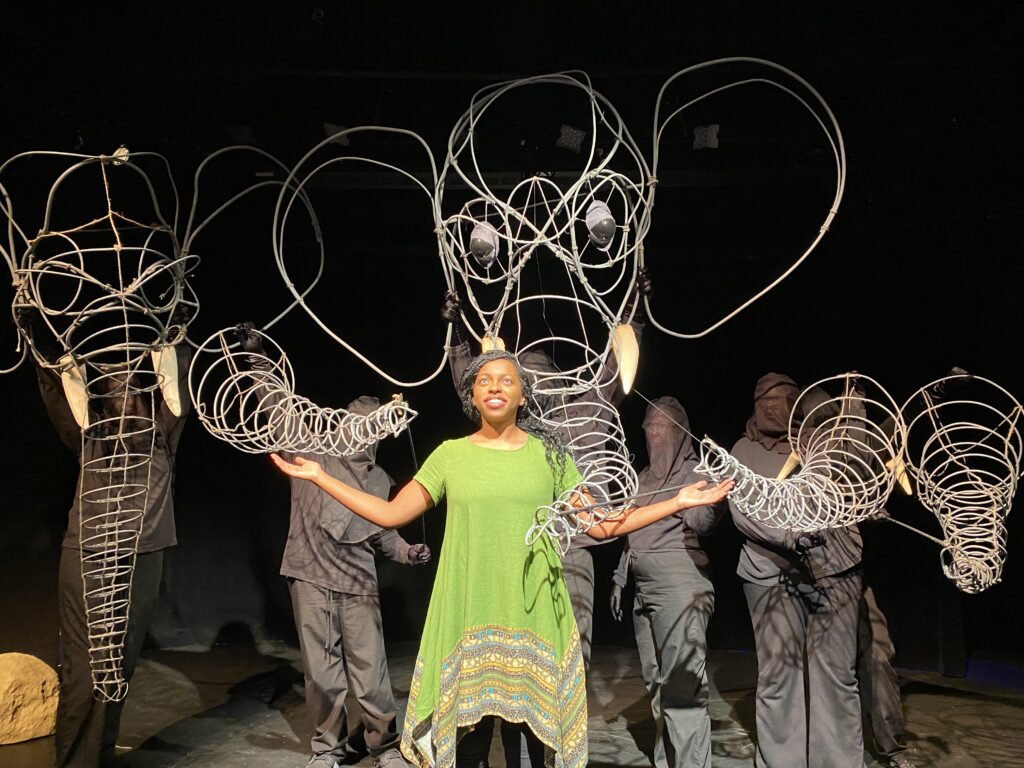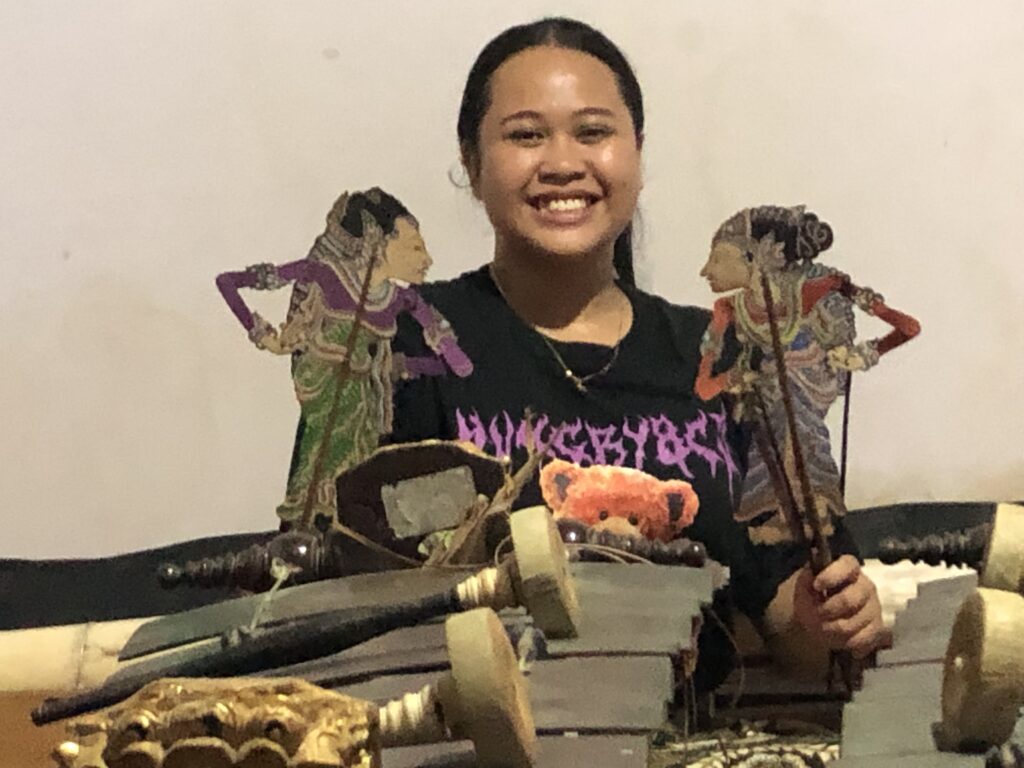a research journal dedicated to puppetry, masks, and related arts
Puppetry International Research (PIR) is a global, interdisciplinary, academic journal dedicated to puppetry and the allied areas of masks, performing objects, and material performance. Published twice a year, its mission is to foster scholarship on puppet theatre and related arts as practiced in the past and present around the world and deepen historical and theoretical understanding of the field. Empirical and theoretical peer-reviewed articles, as well as critical book, performance, and exhibition reviews, and field reports will strengthen puppetry studies as an academic discipline. The journal welcomes submissions from scholars and reflective practitioners from all related disciplines. In collaboration with UNIMA-USA.
Founding Editor: Claudia Orenstein, Hunter College and the Graduate Center, CUNY, New York
ISSN: 2994-7944
a project of UNIMA-USA
This project is supported in part by an award from
the National Endowment for the Arts.
ANNOUNCEMENTS
Pinocchio: A Global Marionette- “Puppet”International Symposium. Call For Papers.
Publication of AOQU issue on World Epics and Puppet Theater
L’epica e il teatro di figura mondiale / World Epics and Puppet Theater, volume 4, number 2, of the journal AOQU, has now been published online. The journal is open access, and you can freely download the entire volume or individual chapters. Please spread the word!
Contributors include Jo Ann Cavallo (editor and introduction), Anna Carocci, Alessandro Napoli, Yanna Kor, Flora Mele, Elisabeth den Otter, Brunhilde Biebuyck, Yassaman Khajehi, Claudia Orenstein, Elyzabeth Oyler, Matthew Isaac Cohen, Kathy Foley, Anurupa Roy, Paula Richman.
https://riviste.unimi.it/index.php/aoqu
Call for Papers: Puppetry International Short Form, Peer-Reviewed Essays
Puppetry International is the bi-annual print publication of the USA branch of Union International de la Marionette (UNIMA). For over thirty-seven years we have published thought provoking puppetry scholarship, artist reflections, and book and performance reviews for general readers in the United States and abroad.
We support new scholarship on a wide variety of puppet-related topics in theatre, film, and media. In each issue, we aim to publish at least one double-blind peer-reviewed article. Although our issues are typically themed, peer review articles do not need to be on the issue theme. The peer-reviewed section of Puppetry International features articles that explore how the puppet functions dramaturgically, investigates larger philosophical questions in response to puppets and performing objects, and/or trace the integral place of puppetry in world performance culture. We especially welcome work by scholars pioneering new discoveries based on archival, field, or practice-based research and/or who generate fresh perspectives on how humans interact with objects in performance. Submissions for peer review should be 2,000 words or less, including notes and bibliography, formatted in MLA style. We seek essays that demonstrate scholarly rigor and original research while remaining accessible to a broad readership. Longer versions of these articles can be published on our website.
Email submissions for peer review to Peer-Review Editor Dassia N. Posner (d-posner@northwestern.edu) AND to PI Editor Alissa Mello (PIEditorUNIMAUSA@gmail.com). To facilitate the review and editing process, please send Word (no PDF documents please). See below for submission and formatting guidelines.
Upcoming Deadlines for peer-reviewed submissions: December 1, 2023 and June 1, 2024.
Book and Performance Reviews
We also seek BOOK reviews (500 words max.) and PERFORMANCE reviews (1,000 words max). If you are interested in reviewing a book or performance, please feel free to contact the content editor for more information. We are always on the lookout for thoughtful puppetry, object, and material performance analysis and have a number of books for which we seek reviewers.
Email performance reviews to Alissa Mello (PIEditorUNIMAUSA@gmail.com). Email book reviews to John Bell (john.bell.puppeteer@gmail.com). To facilitate the editing process, please send Word (no PDF documents please). See below for submission and formatting guidelines.
Submission Guidelines for All Articles– PLEASE READ!
- Subject line on email: PI 54, author’s last name, key word(s) from title (e.g. PI 54Bell interviewPSchumann).
- NO FORMATTING (no columns, embedded images, exotic fonts, different sizes of text, etc.), please, though, of course, use italics where required.
- High-resolution images (300+ dpi at size to be printed, jpegs preferred) should be emailed to the relevant editor(s) as separate files (i.e. not embedded in articles) with permissions information and captions for each image in a separate Word file.
- Obtaining photos and permission to use them is the responsibility of the author.
- MLA style for all submissions that contain citations.
- Please note: While we generally publish new, original writing, we occasionally accept translations of previously published articles if they have not yet appeared in English.
Call for Papers for a special issue of the journal Arts.
European puppet theatre constitutes a long and vibrant tradition in the field of animated arts. Puppet scenes have always quickly and lively reacted to political, economic and social change serving as a barometer of social moods and anxieties that tormented European societies. In terms of visual it both resisted and adapted mainstream tendencies in art and stage design. It also mirrored flaws in European taste answering to both lasting and fleeting fashions in material culture. Fascination with China, Japan, India, the Ottoman Empire, and, broadly speaking, Asian ‘Orient,’ constituted one of the numerous vogues in question which percolated taste across Europe. The question of how European culture reacted to the universe of unknown imagery is a recurring one in various fields of scholarly investigation.
This Special Issue is designed to explore Oriental influences on European puppetry. The very term ‘Oriental’ is understood here as a network of non-European, first and foremost Asian theatrical traditions and imagery which has served to shape and define European culture from the early modern period until today. We invite contributors to submit original articles, both theoretical and historical, interdisciplinary, or field-oriented, focused on the ‘orientalization’ of the European puppet scene. We do not limit our contributions with regard to any strict chronology. We are particularly interested in papers exploring archival and primary sources, both written and iconographic, and dealing with objects. The following topics of interest are suggested, however we cordially welcome other proposals as well:
- Images of non-European countries created on puppet stages,
- Stereotypes of Europeans and non-Europeans embodied by puppet characters,
- Oriental motifs/threads in puppet plays’ plots,
- Iconography of Oriental puppet plays: how the exotic other was created in stage design and costumes,
- Oriental attire as an instrument to criticize the foibles of Western societies,
- Relations between exoticism in art (i.e., chinoiserie, turquerie) and puppet stage design,
- Asian puppet theatre traditions on European stages – (re)interpretations of karagöz, Chinese shadows, wayang, bunraku, kathputli, etc.,
- Asian politics, histories, realities, and societies (re)created on puppet stages,
- Political background of the presence of oriental motives in European puppetry,
- Oriental issues in the puppetry in USSR and Eastern Bloc countries,
- Asian puppet theatre forms performed/adapted by European troupes,
- Asian puppet plays and theatres as depicted and described by Europeans,
- Asian puppets in European collections.
Deadline for manuscript submissions: 30 April, 2024
Dr. Kamil Kopania
Dr. Izabela Kopania
Guest Editors
Manuscript Submission Information
Manuscripts should be submitted online at www.mdpi.com by registering and logging in to this website. Once you are registered, click here to go to the submission form. Manuscripts can be submitted until the deadline. All submissions that pass pre-check are peer-reviewed. Accepted papers will be published continuously in the journal (as soon as accepted) and will be listed together on the special issue website. Research articles, review articles as well as short communications are invited. For planned papers, a title and short abstract (about 100 words) can be sent to the Editorial Office for announcement on this website.
Submitted manuscripts should not have been published previously, nor be under consideration for publication elsewhere (except conference proceedings papers). All manuscripts are thoroughly refereed through a double-blind peer-review process. A guide for authors and other relevant information for submission of manuscripts is available on the Instructions for Authorspage. Arts is an international peer-reviewed open access semimonthly journal published by MDPI.
Please visit the Instructions for Authors page before submitting a manuscript. The Article Processing Charge (APC) for publication in this open access journal is 1200 CHF (Swiss Francs). Submitted papers should be well formatted and use good English. Authors may use MDPI’s English editing service prior to publication or during author revisions.
UNIMA-INTERNATIONAL RESEARCH COMMISSION
As the current co-president of the UNIMA Research Commission, I would like to outline our work and potential for collaboration. UNIMA, the international puppetry association, is managed through a series of Commissions, as many readers will know. The Research Commission seeks to support puppetry research-related activities, whether through conferences and symposia, supporting practice-based research or publication activity. We also seek to share and disseminate information throughout the puppetry, theatre and wider community about puppetry research.
To this end, we have two projects envisaged to begin in the coming year: firstly, a network of residencies for practice-based puppetry researchers to be able to attend centres to develop practice-based research and through access to spaces, materials and mentors for the work.
We are also planning to publish a book of writings by and about refugee and migrant puppeteers; both accounts from refugee puppeteers across the world and also new writing/devising/designing for puppetry by refugees and migrants.
The Research Commission is able to partner with other organizations for grant applications and research projects, offer expertise, information and in some cases, administrative support. We are affiliated to UNESCO and connected to puppeteers across the world.
We are delighted about the emergence of this new peer-reviewed journal in the field of puppetry research and hope to collaborate through supporting, assisting with peer reviewing and sharing information about the journal.
If you would like details about any of the above projects or would like to send information, offer a research centre for an event or activity in collaboration with us, or explore ways of partnering, please send an email to research@unima.org.
CARIAD ASTLES
Royal Central School of Speech and Drama, University of London and Exeter University
Heading Backround Picture: Paripurna Art Company from Bona (Gianyar, Bali, Indonesia) under I Made Sidia performed an episode portraying the Death of Kumbakarna. The eponymous noble-hearted giant is brother of Rawana in the Ramayana and despite believing Rawana is absolutely wrong in kidnapping Lady Sita (Rama’s wife), Kumbakaran believes in defending his country, right or wrong, as Rama’s monkey troops arrive to save her. (Photo: Claudia Orenstein)
